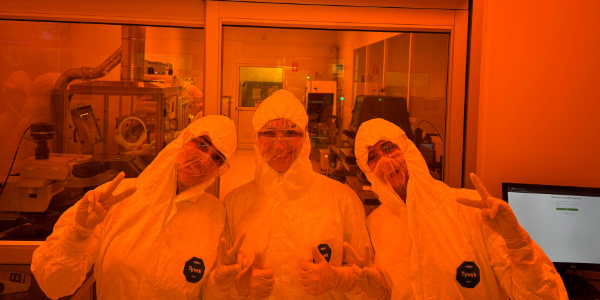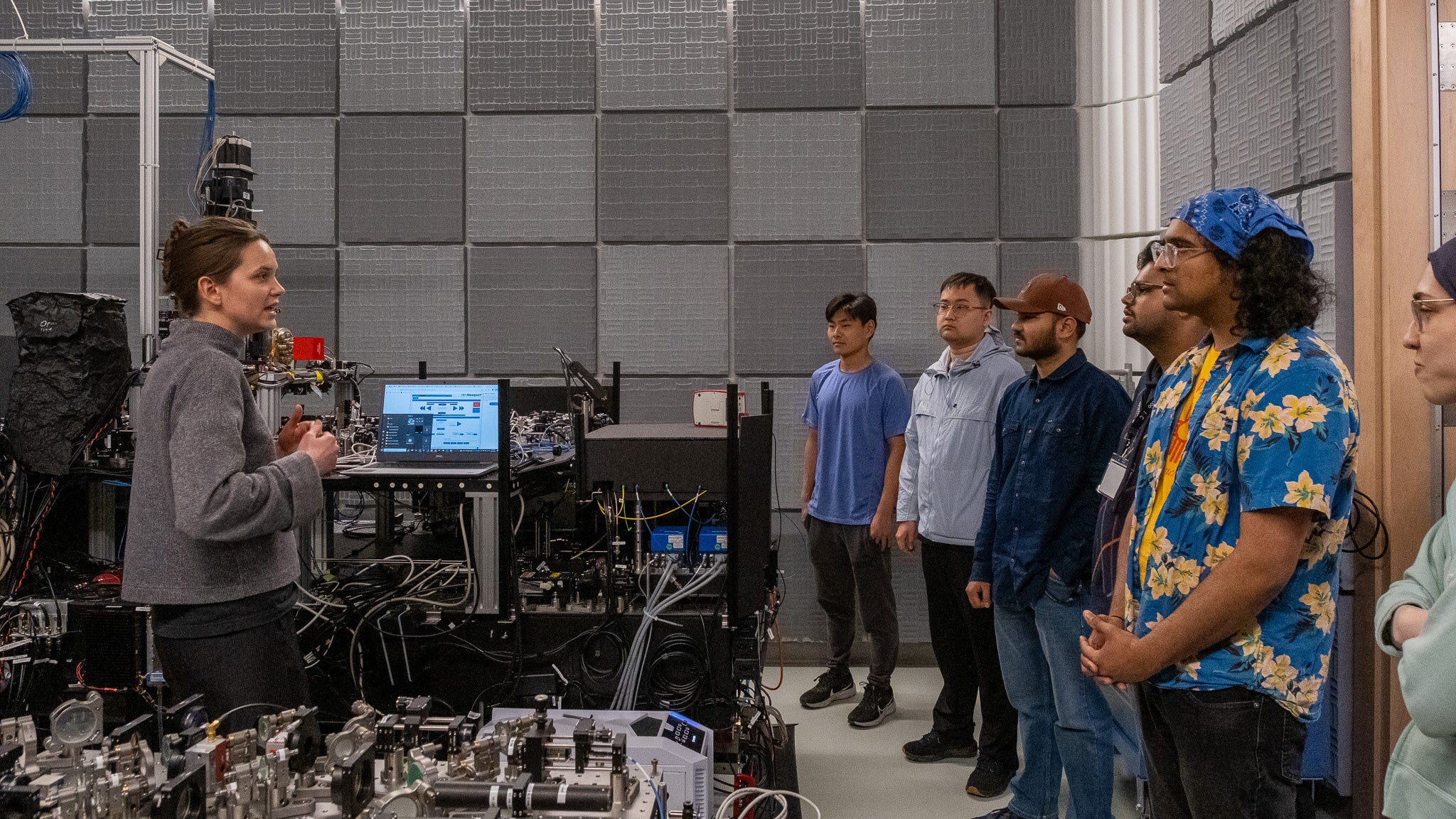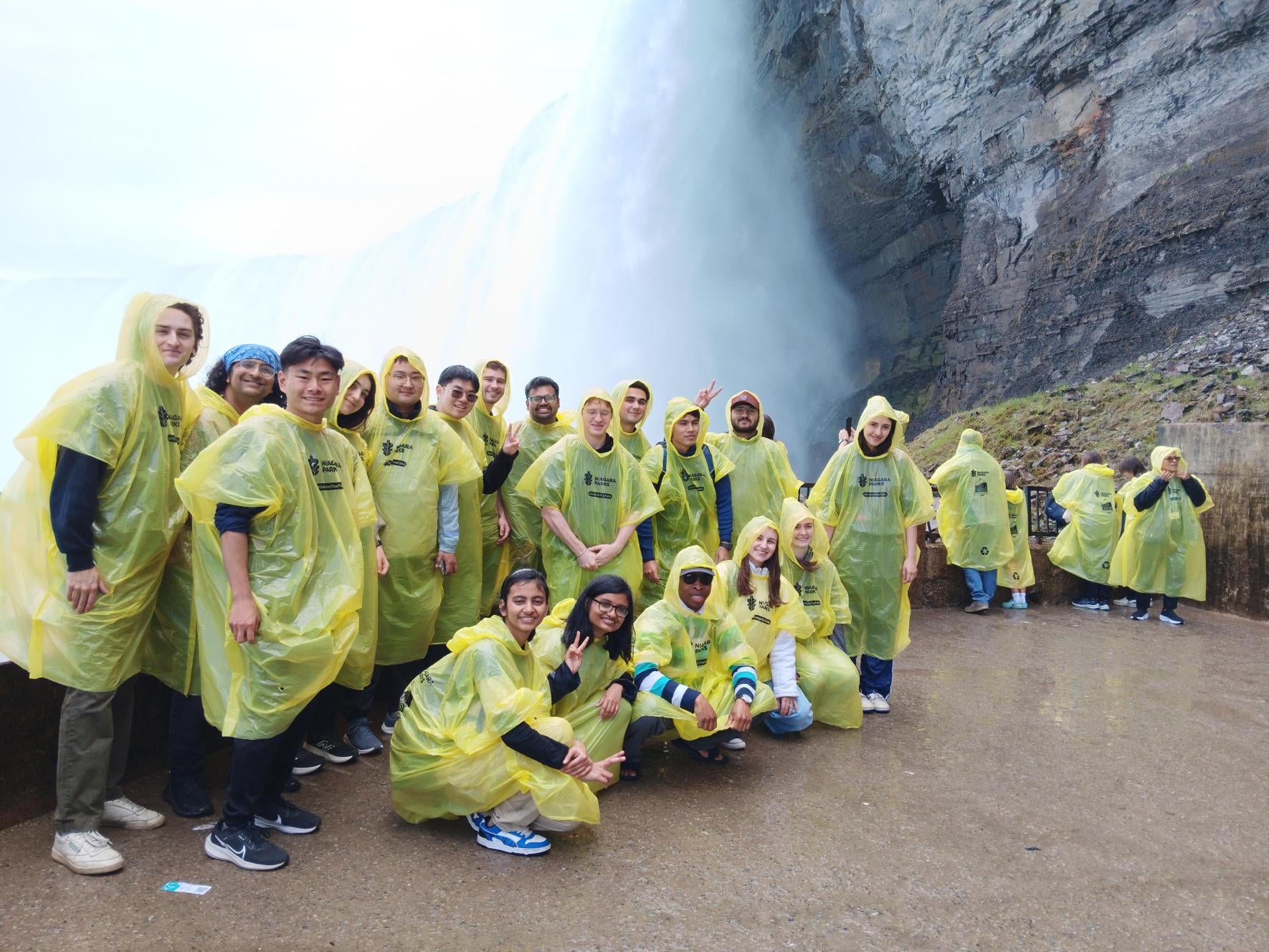Explore quantum information science hands-on at a world-class institute.
The Undergraduate School on Experimental Quantum Information Processing (USEQIP) is a two-week program on the theoretical and experimental study of quantum information aimed primarily at students one year away from completing their undergraduate studies.
The lectures and experiments are geared toward students in engineering, physics, chemistry, mathematics and computer science, though all interested students are invited to apply. USEQIP is held annually at the University of Waterloo since 2009 with over 400 program alumni to date.
The summer school is staffed by the faculty of the Institute for Quantum Computing (IQC), a multi-disciplinary research centre at the University of Waterloo and an internationally recognized leader in the field of quantum information processing.
USEQIP offers:
- Two weeks of in-depth lectures and lab activities at the Institute for Quantum Computing (IQC)
- Paid summer research opportunities available through Undergraduate Research Awards
- Opportunities spanning theory and experiment
- No cost to students and travel bursaries available
- Space for 30 students
USEQIP 2026 will be held from May 25 to June 5, 2026. Applications are due Friday, January 2, 2026. Late applications will not be considered. References are due Wednesday, January 7, 2026.
Topics covered
The two-week program consists of lectures introducing quantum information theory and experimental approaches to quantum devices, followed by 30+ hours of hands-on exploration of Quantum Information Processing (QIP) using the experimental facilities at the institute.
During the program you will be exposed to lectures and experiments on the following topics and more.
Quantum information processing
You'll explore the theoretical background of quantum information science with IQC's world-leading experts, including:
- Quantum algorithms and computing
- Quantum error correction
- Quantum cryptography
- Decoherence and open quantum systems
- Foundations of quantum mechanics
Implementations of quantum information processing
You'll learn how we take ideas from theory and translate them to experiment by studying quantum systems such as:
- Nuclear magnetic resonance (NMR)
- Spin control
- Superconducting qubits
- Quantum optics
- Atomic and trapped-ion quantum systems
- Quantum sensors
Experimental exploration
You'll get hands-on experience with real quantum experiments in the Quantum Explorations Space, including:
- Quantum control and decoherence in NMR
- Entangled photon sources and measurement of non-locality
- Superconductivity and quantum devices
- Fabrication of nano-scale devices in IQC's state-of-the-art cleanroom
- Quantum key distribution
- Design, optimize and implementation of a two-qubit quantum algorithm
Please refer to our FAQs page if you have any questions. Email iqc-useqip@uwaterloo.ca if you require additional information.

Research opportunities
We encourage participants to extend their stay and work with IQC researchers for the summer. Students who apply to USEQIP may also apply for an Undergraduate Research Award (URA) on their application to stay at IQC for paid summer research from May to August.
Thank you to our partners
USEQIP is supported by the the MITACS Globalink Internship (GRI) program and the Canada First Research Excellence Fund (CFREF) as part of the Transformative Quantum Technologies research initiative.



What's USEQIP like? - Hear from alumni
USEQIP recap stories
Early exposure gives undergrads an edge in quantum information science
IQC welcomed 27 students to the annual Undergraduate School for Experimental Quantum Information Processing (USEQIP) for the 16th year running.
IQC's Undergraduate School on Experimental Quantum Information Processing inspires undergraduate students
The 14th annual Undergraduate School on Experimental Quantum Information Processing (USEQIP) was in full swing over the last two weeks at the IQC.

















